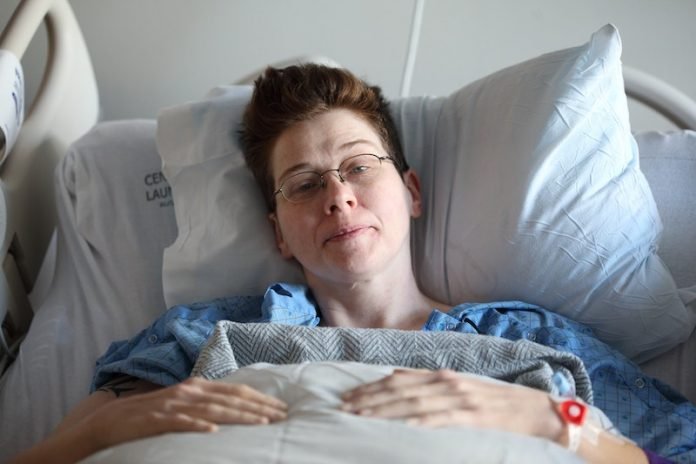
COVID-19 wreaks havoc on the body from the lungs and heart to the kidneys and liver.
But those that survive hospitalization from the contagion often go home with more than pneumonia or an increased risk of blood clots.
In a new study from the University of Michigan, researchers found those that who were hospitalized from COVID-19 illness and later discharged during the height of the pandemic experienced higher rates of post-traumatic stress, anxiety and loneliness.
Of the 178 patients who participated in several survey methods, 64% had COVID-19. These patients were more likely to be Black and be treated in an intensive care unit with a longer length of stay.
The team found COVID-19 patients had especially high rates of positive screens for PTSD (25%) compared to patients hospitalized with other diagnoses but similar symptom presentation (25% vs. 7%).
COVID-19 was independently associated with more post-traumatic stress, anxiety, and loneliness.
The team says COVID-19 patients reported higher levels of isolation-related distress while hospitalized, more strongly agreeing with statements like, ‘I worried that I might not see my friends and family again’ and ‘I was afraid to die alone,’ than those hospitalized without COVID-19.
These feelings directly corresponded with PTSD symptoms, anxiety and loneliness after discharge.
Social isolation after discharge was also associated with worse mental health outcomes and was common in both COVID and non-COVID patients.
But most patients who were screened at-risk (had high scores on these survey methods) didn’t recognize their symptoms as mental health concerns.
Those that did, only approximately 37% of the COVID-positive patients, received follow-up care. The majority of this care was given via telehealth.
The team hopes this work inspires more screening of COVID-19 patients post-discharge, so health care professionals can refer them to resources they may need.
If you care about anxiety, please read studies about deep sleep could help ease your anxiety and findings of brain chemical imbalance may lead to social anxiety disorder.
For more information about anxiety and your health, please see recent studies about troubled relationships may double depression and anxiety risks and results showing why some people are more prone to anxiety.
The study is published in General Hospital Psychiatry. One author of the study is Joanna Spencer-Segal, M.D., Ph.D.
Copyright © 2021 Knowridge Science Report. All rights reserved.



